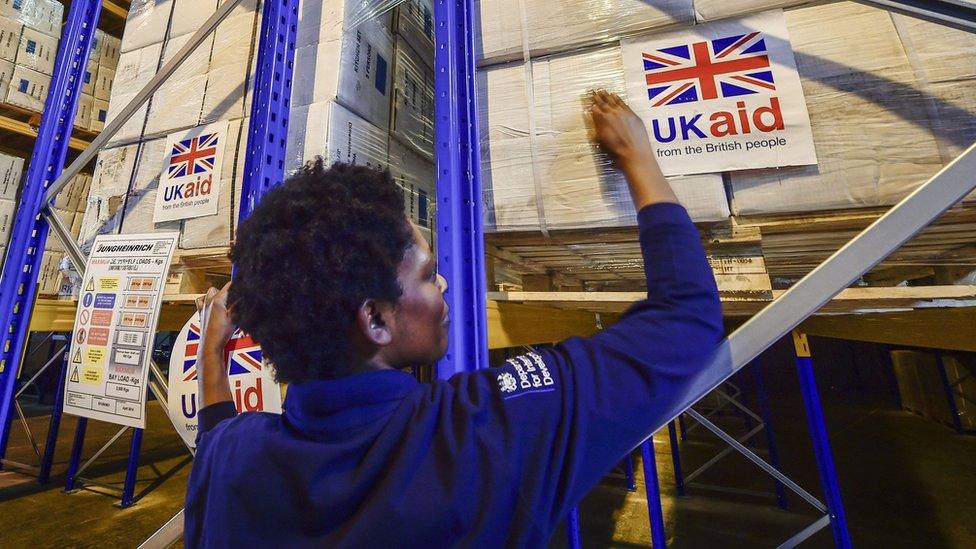Budget October 2021: What is it and how does it affect me?
- Published
- comments
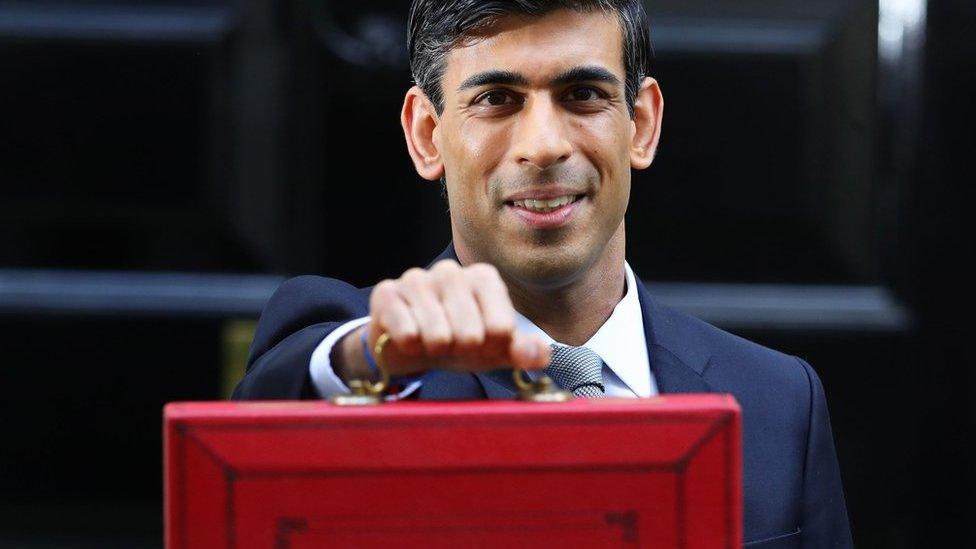
The current Chancellor of the Exchequer is Rishi Sunak
On Wednesday, Chancellor Rishi Sunak unveiled his Budget.
In it, he explained how much money the government will take from the nation in taxes, and what they plan to spend it on.
Mr Sunak is the Chancellor of the Exchequer, and the office (or team) that helps him make the decisions about the country's money is known as the Treasury.
The Budget usually only takes place once a year, but this Autumn's announcement is actually the second of 2021 - there was a Budget in March too.
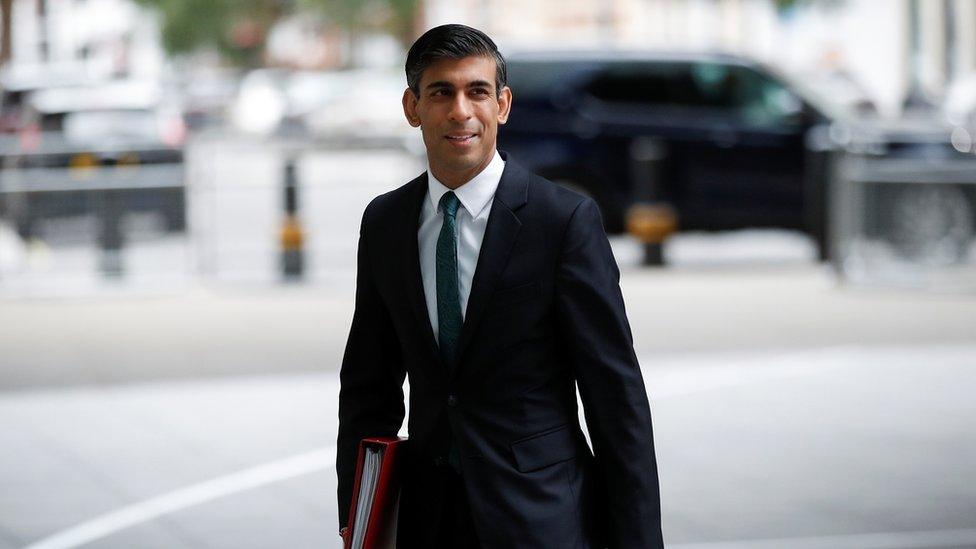
Rishi Sunak has outlined his plans on what the government will spend money on
What was in this Budget?
The latest Budget included details of how the government plans to help people and businesses recover from the effects of the pandemic and the rise in the cost of living.
Mr Sunak announced that the minimum wage - the basic rate that workers earn - will rise from £8.91 to £9.50 per hour.
The chancellor also said that more money would be given to schools and projects that work with children and young people in England.
The chancellor promised to "deliver our commitment to schools, with an extra £4.7bn by 2024-25".
He said: "We know that the pandemic caused significant disruption to children's learning and we've already announced £3.1bn to help education recovery.
"Today, as promised by the prime minister and education secretary, we will go further - with just under £2bn of new funding to help schools and colleges, bringing this government's total support for education recovery to almost £5bn."

Chancellor Rishi Sunak has promised an extra £4.7bn for schools in England
He also set out details about the government's other plans, including:
Investment in youth services to build youth clubs and community sports facilities, including 8000 new football pitches.
More money for libraries, museums and theatres.
And, a £2.6bn investment to be made to create 30,000 new school places for children with special educational needs and disabilities.
But, Labour's Rachel Reeves, the Shadow Chancellor of the Exchequer, said that what the government is promising is not enough to tackle some of the issues facing families.
Education unions have also said that the funding announced for schools is less than what was hoped for by teachers and head teachers.
Why do we have a Budget?
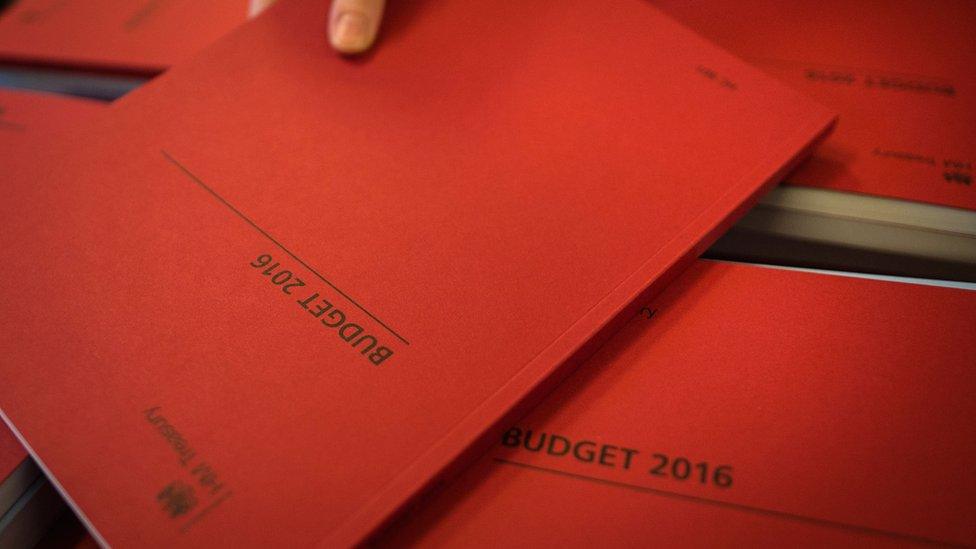
The Budget is an important speech made by the Chancellor of the Exchequer
Just like you decide how to spend your pocket money, the government has to decide how to spend money on services like schools, hospitals, the police, housing and over the last two years, the coronavirus pandemic.
The government needs to work out how much money it has in the bank, so it can decide how to spend it on the country.
Those decisions also include how much people on a basic wage should be paid and how much people who work should pay in tax.
This year, the chancellor has also had to outline how he plans to deal with the effects of the coronavirus pandemic, which has led to the government borrowing large amounts to tackle it.
It is not unusual for a government to borrow a lot, but the pandemic has meant the government has borrowed more money than it normally would.
Where does the money come from?
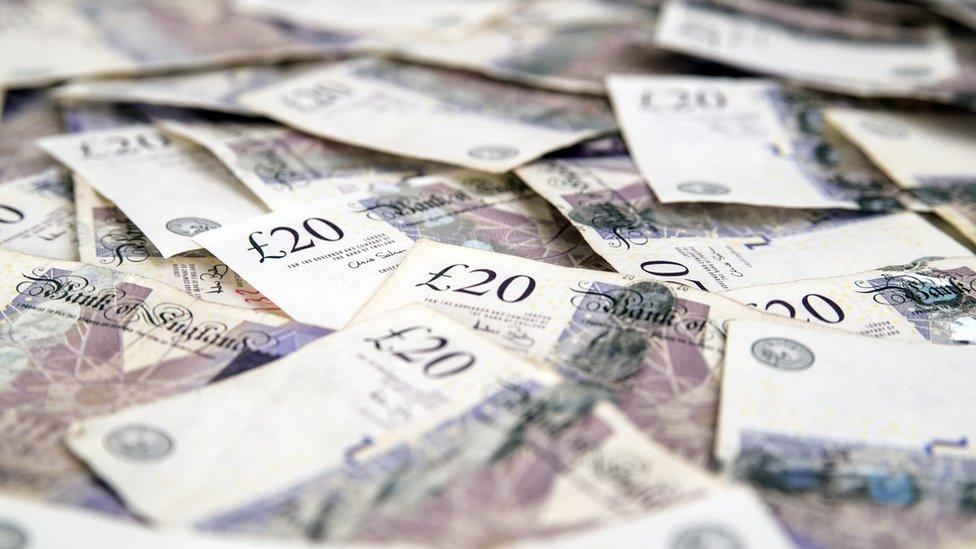
The government gets its money from different types of taxes
The government gets its money from different types of taxes:
Income tax: Everyone in the UK who earns money has to pay some of that money to the government. Most people have to pay about a fifth, but richer people pay more.
VAT: You pay tax when you buy things. You may not realise it but 20% of the cost of many things goes to the government as VAT (Value Added Tax).
Duties: These are extra taxes charged on certain things like cigarettes, alcohol and petrol. Most of the money people pay for these goes to the government as 'duty'.
Does the Budget affect me?
You might not think it, but the Budget does affect your life.
The chancellor can decide to spend more or less money on schools and they can also choose to spend money on youth schemes in your area.
Adults can find they have more or less money to spend - which could mean more or less pocket money for you!
Some parts of the Budget, such as defence spending, affect the whole of the UK.
Others, such as education, only affect England. This is because Scotland, Wales and Northern Ireland make their own decisions.
What's the red briefcase about?
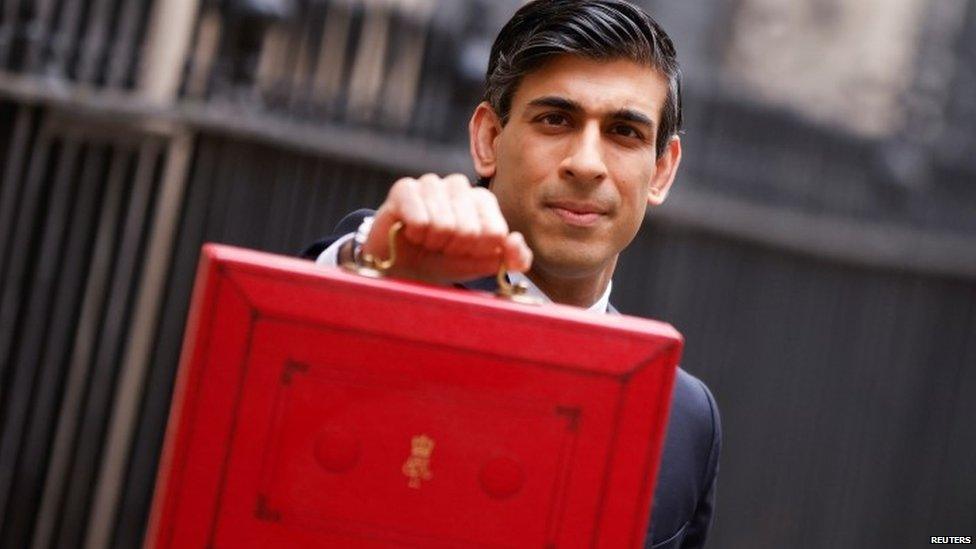
On Budget day the chancellor usually holds up a traditional red box full of financial documents
Usually on the day that the chancellor makes the Budget statement, you see them waving around a red briefcase. It traditionally contains the Budget speech and other financial documents.
The original red briefcase was first used by politician William Gladstone in 1860.
But in 1997 a new one was made as the old one was looking a bit tatty!
What happens on Budget day?
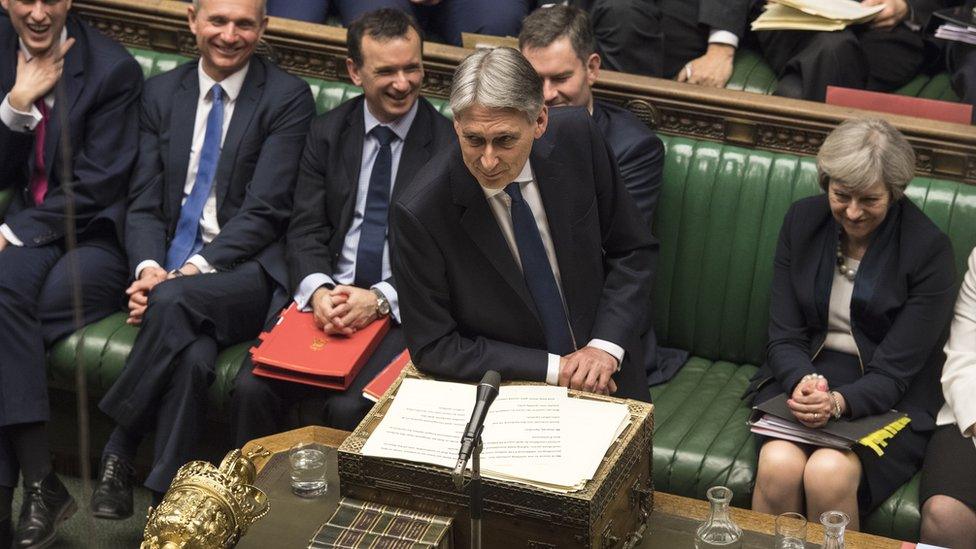
Here is Philip Hammond delivering a previous Budget speech
On Wednesday, the chancellor made his speech to members of parliament (MPs) about how he plans spending the government's money.
People also watched it on television to see what Mr Sunak said.
At the end of the speech, MPs discussed the Budget, then were able to vote on whether or not to accept it.
- Published7 June 2021
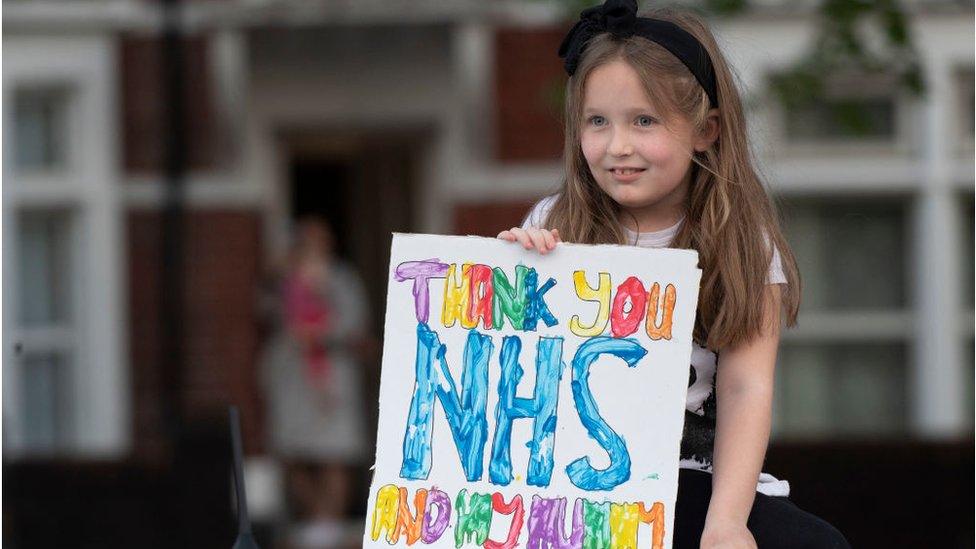
- Published25 November 2020
